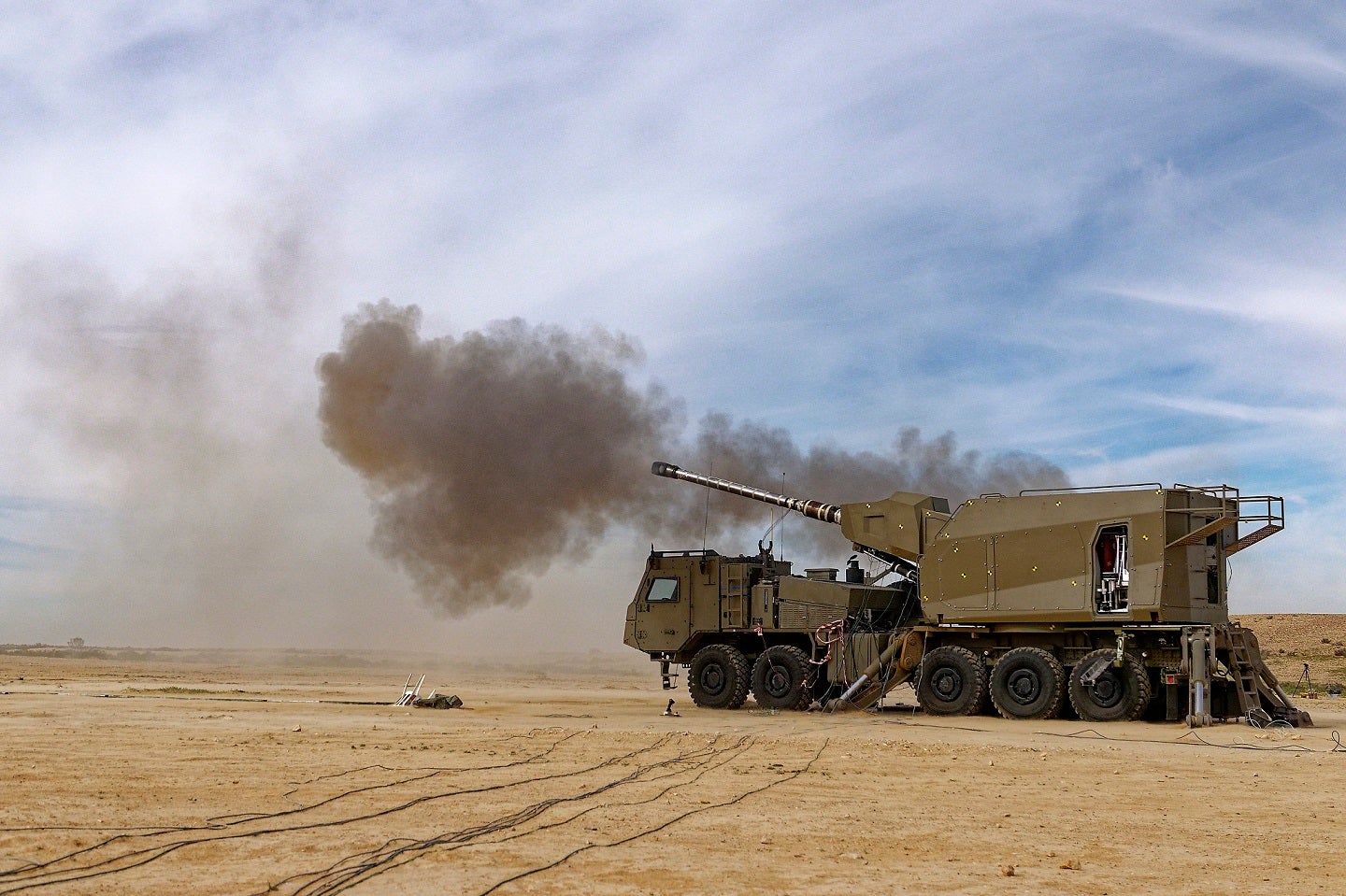
Rheinmetall and Elbit Systems collaborated to develop an automated 155mm L52 wheeled self-propelled howitzer since their co-operation agreement in 2022.
Both partners announced on 16 May that they successfully demonstrated its firepower in early March in southern Israel.
The co-operation builds on the howitzer procurement programmes that Elbit signed with Israel and additional customers. A mature system is already available. This enables the integration of a Rheinmetall gun into the uncrewed, fully robotic artillery turret of the Elbit system.
The integration is in an advanced phase of the verification process. This will help reduce development risks and it will convince militaries of its operational readiness.
Rheinmetall brings its 155mm L52 gun; high mobility HX 10×10 tactical truck with a well-protected cabin; and electronic components for the fire control unit and sensor suite to the joint enterprise.
Dipping a toe in the European market
Personnel from the United Kingdom, Germany, the Netherlands and Hungary attended the demonstration.
The partners intend to put forward their system to compete for Germany’s future system, indirect fire, medium-range programme. The team claims the system will modernise and broaden the Bundeswehr’s artillery capabilities.
The UK’s mobile fires platform programme also remains a focus and additional potential customers, such as Hungary, have expressed interest.
Rheinmetall is currently making modifications to customise the system to European operational requirements and the German regulatory approval process.
The demand for artillery systems such as the L52 howitzer remains indefinately high across Europe. The war in Ukraine has compelled militaries to strengthen their air defence systems. Last month, the missile manufacturer MBDA UK secured its largest ever export deal. It cost £1.9bn to integrate Poland’s air defence system with common anti-air modular missiles and launchers.
Europe is stuck in a cycle where growing demand outpaces consumption. Elbit has already dipped its toe in the European munitions market. In July last year, the Israeli company agreed to a memorandum of understanding (MoU) with another German defence company, Krauss-Maffei Wegmann (KMW). The two agreed to “address the growing European interest in multiple launch rocket system (MLRS) capabilities.” The partners intensified their MoU in December with the team’s ‘Euro-PULS’ concept: a successor system to the MLRS.
Customising and integrating the howitzer
Rheinmetall is making modifications to customise the system to European operational requirements and the German regulatory approval process.
A common thread across European defence strategies is interoperability and integration. The Integrated Review Refresh states: “A more positive consequence of the acceleration of systemic competition… is renewed purpose and co-operation among the UK’s core network of allies and partners.”
Providing customisable and integrated options will help European militaries to interoperate as a cohesive force more seamlessly. Moreover, it will enable defence companies like the Rheinmetall-Elbit team to supply and develop new concepts, such as the ‘Euro-PULS’ concept of Elbit and KMW.







